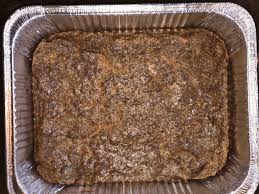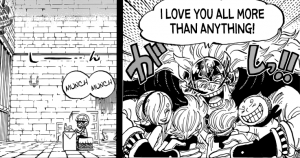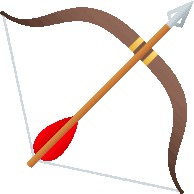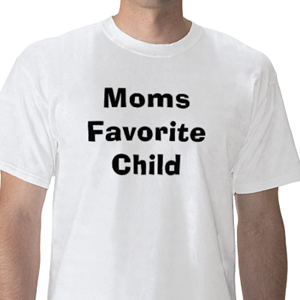Raboyseyee and Ladies,
We attended two great simchas this past Sunday, here we go.
A big mazel tov to Jacob Mael upon his recent engagement to Kayla Siebzener, she the ebullient and beautiful daughter of Marci and Nachi Siebzener (easier to say than to spell). Mazel tov to our friends Autumn and Bruce Mael and their entire extended family. We are looking forward to participating in Jacob’s wedding whom we have known since birth and who his – according to all- a great guy!
After we changed into wedding attire, we had the pleasure of joining Suri Flegmann as she walked her givaldige son Simi down the aisle where he married Miri Edelstein, the beautiful daughter of Shaindy and Yoeli Edelstein. An emotional and super-spirited wedding it was. A big mazel tov to the entire extended Felder, Flegmann, Edelstein and Fuchs families. May Miri and Simi be zoche to many decades of blissful marriage.
——————————————————————————————————————–
Favoritism vs. Favor:
Let’s get real: when it comes to favoritism, we’ve all been there and done that. The Ois readily admits that he has been shown and also given favoritism. Shoin, I said it! Ober, what does favoritism mean? Was Yaacov guilty of it? Says the heylige Gemora (Shabbis 10b), azoy: “A person should never distinguish one of his sons from among the other sons by giving him preferential treatment. As, due to the weight of two sela of fine wool that Yaacov gave to Yoisef beyond what he gave the rest of his sons, in making him the striped coat, his brothers became jealous of him and the matter unfolded and our forefathers descended to Egypt.” More on that below, stay tuned.
Shoin! Sefer Bereishis, wherein we met our heylige Ovis, E’m’os (patriarchs and matriarchs) and many other very colorful characters, comes to an end with this week’s parsha of Vayichi. We’ll sorely miss the many amazing storylines to include creation itself, Odom, Chava and the Nochosh (snake). Ober not to worry because as early as next week, we’ll meet another magical snake, one that doubles as a shtekin (stick); avada you can relate to that, if you chap. This week we bid a fond adieu and aviderzeyn to Yaacov, Yoisef and many other fascinating personalities we met in recent weeks and months.
The good news: they will magically come to life and we will read their stories once again and be mesmerized by each one as if we were reading them for the first time. Actually, that’s not entirely emes because later in Sefer Devorim, Moishe will again shout out and bless the Shevotim (tribes) by name; some really needed a booster brocho. Boosters are good! Nu, is anything better than the heylige Toirah? How many other books can you read over and again? None! Vayichi marks the end of amazing stories and events to include creation of the world, mankind, Noiach, Avrohom, Soro, Loit (and his special daughters), Yitzchok and his young bride, Lovon and his chicanery, Yaacov and his four wives, Eisav, Dina and her encounter with Shechem, the holy but mischievous brothers, Yoisef, Potiphar, Mrs. Potiphar, and a few we left off the list.
As Bereishis comes to an end, so does the practice of grabbing someone by the mokoim- mila (lower region) when swearing, ober as Parshas Vayichi opens, we have one last opportunity to read those five famous words of “sim no yodchco tachas yiraychi. Sadly a few yeshiva rebbes, camp counselors, and lately, others in authority, continue this practice -ad hayoim hazeh on their innocent victims. Oy vey! Says the heylige Toirah azoy:
| 29. When the time drew near for Israel to die, he called his son Yoisef and said to him, “If I have now found favor in your eyes, now place your hand beneath my thigh, and you shall deal with me with loving kindness and truth; do not bury me now in Egypt. | כט. וַיִּקְרְבוּ יְמֵי יִשְׂרָאֵל לָמוּת וַיִּקְרָא לִבְנוֹ לְיוֹסֵף וַיֹּאמֶר לוֹ אִם נָא מָצָאתִי חֵן בְּעֵינֶיךָ שִׂים נָא יָדְךָ תַּחַת יְרֵכִי וְעָשִׂיתָ עִמָּדִי חֶסֶד וֶאֱמֶת אַל נָא תִקְבְּרֵנִי בְּמִצְרָיִם: | |
| now place your hand beneath my thigh: And swear. —As explained in the narrative of Abraham and Eliezer (Gen. 24:2), he meant that Yoisef should swear by covenant of the circumcision. | שים נא ידך: והשבע: |
Nu, after you read what these words mean, you can easily chap the answer to a question that’s plagued many medroshim and others for generations: why didn’t Yoisef make an effort to contact his father for over 20 years? Says Rashi (again) quoting from Pirkei d’Rebbe Eliezer 39 that Yaacov meant that Yoisef should swear by the covenant of the circumcision, and vos meynt doss (what does that mean)? Though Rashi has previously explained this in detail twice before, seemingly many of you have already forgotten and in this case, perhaps it’s for the better. Let’s chazir one more time. Back then, the only way to swear was to grab an item that represented a mitzvah and since it was before Matan Toirah, there were no other real mitzvis to chap but the bris mila to hold onto. In other words, when one had to swear, he had to grab onto the mila (penis) of the person who asked him to swear. Nu, it’s one thing when your father asks that you accompany him to the mikveh on erev Rosh Hashono and even that’s not very comfortable, it’s entirely another matter when he asks you to chap his mila and swear. Shoin, now that we chap what these words really meant and how they played out, we also chap why Yoisef was afraid to find his father. Perhaps Yaacov would have asked Yoisef swear as to his whereabouts for so many years thereby causing Yoisef to grab what no son should have to? Veyter! The bottom line: Would you contact your father if you knew what’s in store? Likely not! Nu, thankfully, the RBSO decided to give the Yiddin the heylige Toirah and other holy books by which we can swear, and life is avada better.
Last week (Vayigash), we learned that Yoisef exposed himself (literally as well) to his brothers, again to his little brother Binyomin, reconciled and also had an emotional reunion with his father Yaacov. They all lived happily after, at least for a while. Shoin: that was the gantze parsha. As we begin Vayichi, it’s seventeen years later and we’re ready to learn, lommer unfangin (let’s begin) Vayichi. By next week this time, the Yiddin will have been enslaved to Paroy -minuvil that he was- for over 200 years. We will read of their suffering, the promised redemption, Moishe’s assignment to get them out of that hell hole and so much more, ober this week, Yaacov is still alive (some say he taka never died). More on that later.
Yaacov feels the malach hamoves (angel of death) hovering. He calls for a family meeting of all his kinderlach; seemingly two grandchildren snuck in ahead of time for their own brochois, the very ones we recite weekly at the shabbis tish. Says the heylige Toirah that Yaacov’s plan was to reveal details about the end of days which mistama he knew through ruach hakoidesh (divine inspiration). Ober the RBSO nixed his plan. Yaacov called an audible and went to plan B in which he addressed each of his children and give them special brochois (blessings). Is that what he did? Not exactly. At this gathering Yaacov will continue the tradition of selection vs rejection, favoritism mamish, a topic we have covered in the past. Efsher, you recall the Ois telling you that throughout Sefer Bereishes, we come across characters that were singled out, loved by the RBSO and their parents, while others, usually their siblings, were seemingly rejected by at least one parent, the RBSO and sometimes both. Rejection by both was zicher not a key to long term success.
 ‘Tis the time of year when the goyim make lists: they are busy making resolutions for the coming year which will mistama last as long as our promises to lay off the 4C’s (challah, cake, cookies, chulent.) Let’s not forget to shout out the potato kugil (shout out to Rena Kwestel who dropped off a sizzling hot potato kugil for the Ois to enjoy this past Friday). Ober by untz Yiddin (us Jews), the season for resolutions and tshuva has long gone; they’re all or mostly broken, and we’re zicher back to our routine of aveyrois, each according to his own predilections, if you chap. Instead, at this time, we’re busy looking at advertisements for different Pesach programs where we can recall the 210 years of slavery and relive the ultimate redemption poolside, the tea room, and dining room, at any of the myriad hotels catering to thousands of Yiddin who think that making Pesach at home is efsher osur (verboten) min Hatoirah: is it?
‘Tis the time of year when the goyim make lists: they are busy making resolutions for the coming year which will mistama last as long as our promises to lay off the 4C’s (challah, cake, cookies, chulent.) Let’s not forget to shout out the potato kugil (shout out to Rena Kwestel who dropped off a sizzling hot potato kugil for the Ois to enjoy this past Friday). Ober by untz Yiddin (us Jews), the season for resolutions and tshuva has long gone; they’re all or mostly broken, and we’re zicher back to our routine of aveyrois, each according to his own predilections, if you chap. Instead, at this time, we’re busy looking at advertisements for different Pesach programs where we can recall the 210 years of slavery and relive the ultimate redemption poolside, the tea room, and dining room, at any of the myriad hotels catering to thousands of Yiddin who think that making Pesach at home is efsher osur (verboten) min Hatoirah: is it?
And before we utter those three givaldige words of chazak, chazak, vinischazake, it’s seemingly undeniable that Yaacov -on his deathbed mamish- is still playing favorites. Though he had 12 boys, seemingly only three walked away with substantial brochois. A few were neutral while others don’t epes sound like brochis to the Ois. And to chap what took place, we begin with Reuvain, the bechoir (firstborn) and this is how it all played out.

Says Yaacov (not in the words that follow), azoy: Reuvain, you are mamish a minuvil! You are my firstborn son and you had everything coming your way including the birthright and more but you had sexual relations with Bilhah, my wife, your own stepmother; how could you? Let’s recall that Yaacov had four wives: two sisters (Leah and Rochel) and another set of sisters (Bilhah and Zilpah). Reuvain is blindsided by this blessing. As Yaacov’s bechoir, he was expecting a double portion but had seemingly already double dipped, if you chap. Anyway, says Yaacov… because you were so hasty to jump into bed, you have lost your firstborn rights. It appears Yaacov wasn’t all that upset that Reuvain was in on the plot to sell Yoisef but bedding Bilhah, stuck in his craw and avada who could blame him? Anyway Raboyseyee: jumping into bed too hastily always causes issues, especially with the help! Avada not all agree that Reuvain did this with Bilhah and to be fair, some suggest that Reuvain was merely moving the bed and though this could be pshat, seemingly Yaacov wasn’t sold on this interpretation. Though on his deathbed mamish, he seemingly did not forget this little incident. Moreover, let us not forget that Moishe specifically (Devorim 33:6) davens for Reuvain and says azoy: May Reuvain live and not die…” Moishe prayed for Reuvain, that his great sin in connection with Bilhah should not exclude him from the “World-to-Come.” Bed mover? I think not!
Says the Malbim, quoting Sifrey Kabolo, azoy: the emes is that Yaacov was supposed to have fourteen sons. He was to have twelve from his four wives and then following her untimely passing, he was destined to have two more children. Ober, when Reuvain then went and switched his father’s bed, he prevented the last two from coming into existence. Reuvain had to repent for this act and thus put in some extra effort in order to save Yoisef who was destined to be the father of Efraim and Menashe. They would be considered the completion of the fourteen children stemming from Yaacov. You see how the RBSO has a master plan? In fact, when Yaacov met Efraim and Menashe, he asked Yoisef who they were. Says Rashi azoy: Yoisef responded they are the children with whom the RBSO blessed me, בזה (with this) Yoisef was hinting to Yaacov that these two children would be the completion of the Shvotim. The numerical value of “בזה” is fourteen. Gishmak mamish!
Next up were Shimon and Levi who also took a schmeising (get berated) for their violent temperament. So pissed off was Yaacov that he mamish cursed their temper; he called them co-conspirators -words of indictment, mamish. Just imagine the scene: the tata is laying on his deathbed and instead of bentching his boys, he berates them. What was bothering him? Seemingly he was still quite angry that the boys, in an act of revenge for Shechem the chazir having raped and tortured their shvester Dina, wiped out the entire male population. Judging by his anger, one might have thought that they tore open sweetener packets or forgot to use a kli shayne on shabbis; oy vey! Were they guilty of tearing toilet paper on shabbis to wipe their michilas? Oy! Taka killing all the males was a bit extreme and Yaacov never let it go.

You can just imagine the look on Yehuda’s face when it was his turn for the brocho. Says Rashi that when he heard the brochos his older brothers received, he started planning an escape route. Our sages tell us that upon hearing his brothers’ not so givaldige blessings, he started tiptoeing toward the door, anticipating a lambasting for his conduct with Tamar. Let’s not forget that Yehuda was also at least a shtikel co-conspirator in the sale of Yoisef, in fact, wasn’t it his idea? Ober Yaacov called to him in a soft tone, Yehuda, Yehudeleh! You are not like them. You are the one with leadership qualities. You admitted to being the father of Tamar’s children despite the considerable embarrassment it caused you. This demonstrated an inner sense of morality. It does? And as a special reward for your behavior during the entire episode, the Moshiach will eventually come from your tribe. And that’s what we call a real brocho: Visit your local zoina (whore) and bring about the Moshiach! Amazing! Maybe it’s a mitzvah? You want to outshine your brothers and take over as the leader and have kingship and royalty come from your mishpocho? All you need to do is sleep with your daughter-in-law, condemn her to death, later admit that you got her pregnant with twins and offer her a pardon. You’re in! Veyst zich-ois (it appears) that Yaacov was relieved that Yehuda, unlike his two older violent brider (brothers), didn’t kill Tamar, her mishpocho, and the entire city she came from, though he had so initially decreed.
Yaacov had more to say: “The scepter shall not leave Yehuda and lawmakers from his descendants, until Shiloh (the Messiah) arrives.” What? Let us recall that it was the scepter -mamish- that he did leave behind and that get him into trouble to begin with. Seemingly Yaacov understood that when it comes to matters of sex, men cannot control themselves and instead of shelting (cursing him out), he heaped a series of brochis on him. Next up were Yissoschor and Zevulin; neither of them were singled out for leadership, but immediately after Leah’s sons, we read this about Don (Dan) – the eldest of the children of the maidservants. “Don shall judge his people, like one of the tribes of Israel.” Though Don was born to the help, Yaacov blessed him with being “like one of the tribes of Israel.” Don received a leadership role and his special status will be repeated later in Moishe’s brochois to the shevotim (tribes), where Don will receive a blessing similar to the one now bestowed on Yehuda: Said Moishe: “Don is a lion whelp that leaps from Bashan.”
We’ll skip the rest of the shvotim. Seemingly they were only bit players, followers if you will, and didn’t get much attention either way in the heylige Toirah. instead, we go straight to Yaacov’s favorite son Yoisef.
Yaacov spends the next five pisukim of the heylige Toirah heaping praise and myriad brochis on Yoisef. Most of the brothers got one posik. The bottom line: it’s avada good to be the Viceroy. Ober, let’s pay special attention to Rashi (49:24) who says something so shreklich (shocking), it’s mamish hard to picture. On the other hand, maybe not. Let’s read the shaded box below- read this carefully:
| Our Rabbis, however, interpreted “But his bow was strongly established” as referring to his (Joseph’s) overcoming his temptation with his master’s wife. He calls it a bow because semen shoots like an arrow. וַיָּפֹזוּ זְרֹעֵייָדָיו [וַיָּפֹזוּ is equivalent to וַיָפֹצוּ, scattered, that the semen came out from between his fingers.] | בן ישראל. לְשׁוֹן נוֹטָרִיקוֹן אָב וּבֵן, אֲבָהָן וּבְנִין – יַעֲקֹב וּבָנָיו. וְרַבּוֹתֵינוּ דָרְשׁוּ וַתֵּשֶׁב בְּאֵיתָן קַשְׁתּוֹ עַל כְּבִישַׁת יִצְרוֹ בְּאֵשֶׁת אֲדֹנָיו, וְקוֹרְאוֹ קֶשֶׁת, עַל שֵׁם שֶׁהַזֶּרַע יוֹרֶה כַּחֵץ: |
Drop the Mic! Rashi and the Gemora say what? That semen came out from between his fingers? What is going on here? Where and how did semen make its way into the parsha and Rashi here? And what’s this bow and arrow talk in the parsha? Is it Lag B’oimer? Nu, zorg-zich nisht (don’t be worried) and let’s learn pshat.

Says the heylige Gemora (Soitah 36B) azoy: Yoisef was sold as a slave to Potiphar. Potiphar’s wife tried to seduce him, and although he initially rejected her advances, he eventually gave in and seemingly also went in, if you chap. Say it’s not so please! As he was about to complete the illicit act of relations- shrecklich mamish and OMG, the image of his father suddenly became fixed in his mind, and he relented. Said Reb Yoichonon azoy: “His strength was firmly founded.” Which means what? His Eyver (member) was erected. “And gushed out from his hands” – he stuck his hands in the ground, and the semen came out from between his fingernails. He dug his fingernails into the ground in order to control himself, and miraculously, the flow of semen issued from his fingers into the ground instead of issuing into Potiphar’s wife. Well, blow me down! Can’t believe what you just read? You’re not alone: neither could another individual (let’s call him SK) when the heylige Ois told him this pshat last Friday night at the shabbis tish and was convinced that the Ois is an apikoires mamish.
The bottom line: seemingly Yoisef did sin in thought, and drops of semen issued from between his fingernails, but he did not complete the evil act by injecting [his seed] into that foreign woman. Reads like a presidential scandal a few decades back, if you chap. Nonetheless, because some seed did spill from wherever, and though no blue dress was involved, if you chap, his skeleton was buried in Israel but not his body. As an aside, the Marsho suggests that the semen did in fact escape from its usual source; avada this you can understand.
The heylige Gemora, quoting a Breysa goes on to say that twelve Shvotim should have descended from Yoisef, like from Yaacov- but since the semen exuded from his (10) fingernails, he merited only two sons. The bottom line: Yoisef only had two sons; the rest seemingly slipped through his fingers, so to speak. Had his zerah come from, and gone into the right places, he would have taka had another 10 children, ver veyst? Whatever happened or not, is none of our business and zicher no excuse for you chazerrim to put yourselves in a situation where semen can come out of your eyver, fingernails, or any place else and end up in the wrong place! Veyter.
Following the gishmake brochis only a father can give, Yaacov passed away at the age of 147. Did he? Expired, yes, but died? The heylige Gemora is not so sure he ever died. Says the heylige Toirah azoy: “When Yaacov finished instructing his sons, he drew his feet onto the bed, he expired and was gathered to his people.” Rashi, quoting the heylige Gemora, comments, “It does not say that he died…. He lives forever.” Said Rebbe Yoichonon, in the Gemora, “Our father Yaacov, did not die. Rebbe Nachman asks, “Did the mourners eulogize him and the embalmers embalm him for nothing?” Rebbe Yoichonon quotes the verse in Yirmiyahu: “Have no fear, my servant Yaacov…for behold I will save you from afar and your descendants from the land of return.” Just as his descendants are alive, so too is he. Avada you’re thinking, how could this be when the Toirah explicitly states that Yaacov was embalmed and buried. Ober not to worry, this is the medrish and the heylige Gemora; anything goes. We just have to believe.
On the one hand, we can interpret this statement homiletically: Yaacov lives on through later generations. As long as his descendants, the Bnei Yisrael, are alive and following his legacy, he lives on. Still, one has to wonder how Rebbe Nachman accepted this answer. The Toirah explicitly states that Yaacov was embalmed and buried. He answers that every verse in the Toirah must incorporate the words of our Sages, even when logic dictates otherwise. When Rebbe Yoichonon states his interpretation, it is not just a homiletic exercise, but a mesoira (tradition) going back to Sinai. It defines the meaning of the verse: his embalmment must be understood in that context—he only appeared to be dead. This concept is integral to understanding all of Chumash: to read the Toirah without seeing it through the prism of the commentaries is dangerous. All you have to do is believe and all else makes perfect sense. Hence, the heylige Ois has unlimited material to share.
And the bottom lines on the favoritism Yaacov showed Yoisef when he made and gifted him the k’soines passim (multi-colored shirt), and continued to show on his deathbed mamish, might be azoy: Yaacov was a romantic who worked 14 years to marry Rochel who was childless for many years before Yoisef was born. Of course, Yaacov favored him; would you be any different? The heylige Toirah goes out of its way and tells us that Rochel was a beauty. Yoisef is similarly described. Yoisef reminded Yaacov of Rochel and shoin. Says the heylige Zoihar (216b):
כַּד יַעֲקֹב מִסְתַּכֵּל בְּיוֹסֵף, הֲוָה אִשְׁתְּלִים בְּנַפְשֵׁיהּ, כְּאִילּוּ חָמָא לְאִמֵּיהּ דְּיוֹסֵף. דְּשַׁפִּירוּ דְּיוֹסֵף דָּמֵי לְשַׁפִּירוּ דְּרָחֵל
When Yaacov would look at Yoisef his soul would be restored, it was as if he was looking at the mother of Yoisef, since the beauty of Yoisef resembled the beauty of Rochel.
As such, we can deduce that Yaakov arguably had a special affection for Yosef as he was a constant reminder of his dear wife Rochel who was no longer with him. Let’s cut Yaacov a break!
Ober what about favoritism shown to Menashe and Ephraim? Listen to this pshat: In last week’s parsha, the heylige Toirah delineated 66 direct descendants who traveled down to Mitzrayim with Yaacov. Of those 55 grandchildren were mentioned by name. As an aside, only males, with the exception of Dina and Serach, were shouted out and included in the count. The heylige Toirah tells us that many women including wives of the boys and their daughters joined. Only two grandsons however, were brought forward for an unusual and bizarre adoption ceremony during which Yaacov proclaimed the two -Menashe and Ephraim (to the exclusion of the others) would now be regarded as his own. How did the others feel? Ver veyst? Had Yaacov learned nothing from his own history of favoritism? Did he not spend decades running from his brother Eisav because he himself was the recipient of favoritism from his own parents? He did! And was Yoisef not the victim of hatred and jealousy by his brothers because of his favored treatment? He was! Let’s not forget how Yishmoel felt when Yitzchok was favored and let us also shout out Kayin and Hevel; did Yaakov not know the family history? And on his deathbed, aside from elevating his grandchildren to child status, he showed favoritism to a few above the others? What’s pshat here? Was he suffering from amnesia?
Ober, efsher we can argue azoy: Favoritism doesn’t necessarily mean that the recipient has been selected as the best, the greatest, the most loved of all time to the exclusion or marginalization of all others. What it could efsher mean is that in a particular moment of time, perhaps a crucial transformative moment, the recipient has been given the attention, the consideration, the care, the favor that helped one emerge from that experience stronger, healthier, and more reassured than one might otherwise have been. For reasons we were not told, is it shayich that Yoisef and his boys just needed that extra favor and attention from Yaacov? Efsher we can argue azoy: Yaacov did not show favoritism to Ephraim and Menashe, not at all. Efsher he but showed them favor, at a critical time when they needed special attention that only their Zeyda Yaacov could provide. Let’s recall that these two grandchildren were different than the others; they were born in Mitzrayim, separate and apart from the rest of their family. They were not surrounded by aunts, uncles and cousins. The others had a support system, not so Yoisef’s kids. Yaacov never stated that Ephraim and Menashe were his favorite grandchildren. Efsher, he felt in his gut that they needed a boost. Efsher he was but trying to connect them to the family they barely knew? He zicher chapped that showing favoritism is almost always problematic; showing favor is not. Don’t we all do, or wish we could chap which of our children needs to be favored a times? Veyter!
And we conclude this expanded 2021 review with our list of losers and winners in Sefer Bereishis? The losers include: Odom and Chava whose appetite for forbidden fruit caused them to be removed from the great garden. Nu, cake -though calorie laden- would have been better and safer. No one gets thrown out of anywhere for having a cookie. We also met the snake, another loser, whose legs were chopped off for seducing Chava. We nebech lost Hevel who was killed by his jealous brother and we’ll put Kayin into the loser column for committing the first act of murder. We’ll also condemn Chom whose son K’nan either sodomized or castrated (or both) Noiach. Chom was taka cursed by his father Noiach. Let’s not forget Yishmoel who was thrown out of his father’s house, Mrs. Loit who didn’t make it out of Sedoim, Eisav who -according to some- raped and pillaged and who was deceived out of his birthright and his father’s brochis; he makes a final appearance in this week’s Parsha. Let’s add Leah who had a loveless marriage, Dina who was taken -both ways according to Rashi (who knew better), by Shechem. We also include Chamor, Shechem and all male inhabitants of the city who were cut down by Shimon and Levi. Let’s not forget Yehuda who was nebech demoted from a leadership role from among his brothers yet rose to the occasion, if you chap, but still had to pay for sexual favors with his own daughter-in-law. Mr. Potiphar, who after making advances on Yoisef became Mrs. Potiphar made the list. Oh, and let’s not forget Reuvain, Shimon and Levi who would have been better off before they received their father’s brochis. We have to feel for Eyr and Oynon; the RBSO did not like one of them and despised the other for spilling valuable seed. They came and went, if you chap, in but a few pisukim.
Our winners include Noiach, a man who charmed the RBSO before he took to the bottle, and his family who were selected to survive the great flood and rebuild society. Avrohom Oveenu, the first monotheist, the first to have a bris, albeit at 99 years of age, and the first Toirah character to have multiple wives as well as a boatload of Pilagshim (concubines), Mr. Loit who survived the debacle in Sedoim and also, albeit unwittingly, chapped from both daughters, his two holy daughters who got away with incest and were the beneficiaries of favorable commentary by our sages, Yitzchok who came a hairs breath away from being sacrificed by his own father but at age 40 still chapped a three year old beautiful wife, Yaacov (his mother’s favorite), who was selected to become the father of the entire B’nai Yisroel, and because -even after being fooled into marrying the wrong girl- didn’t give up and went after and got his true love, Rochel.

Our second biggest winner, though it could easily be argued that he’s really the biggest winner of all, is Yehuda who, though toppled from his leadership position following his roadside incident with Tamar, rose yet again, if you chap, and was selected for royalty and kingship forever. The big winner seems to be Yoisef who had to overcome many trials and tribulations including a plot to kill him, slavery, seduction, and a 12-year prison bid. With his dizzying good looks, charm, and avada with siyata dishmayo (help from above), he rose to become the Viceroy of Egypt. Let’s not forget Osnas who, though born from questionable lineage, was the mother of two inheritors of the land, Ephraim and Menashe, by whose names, we bentch our children weekly. So much for Yichus!
Chazak, Chazak, Vinischazake!
A gittin Shabbis-
The Heylige Oisvorfer Ruv
Yitz Grossman
